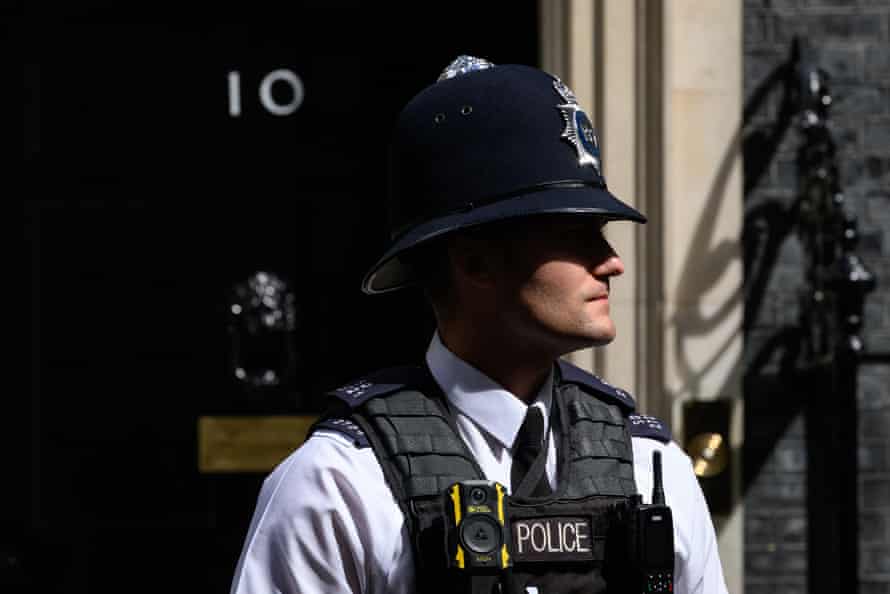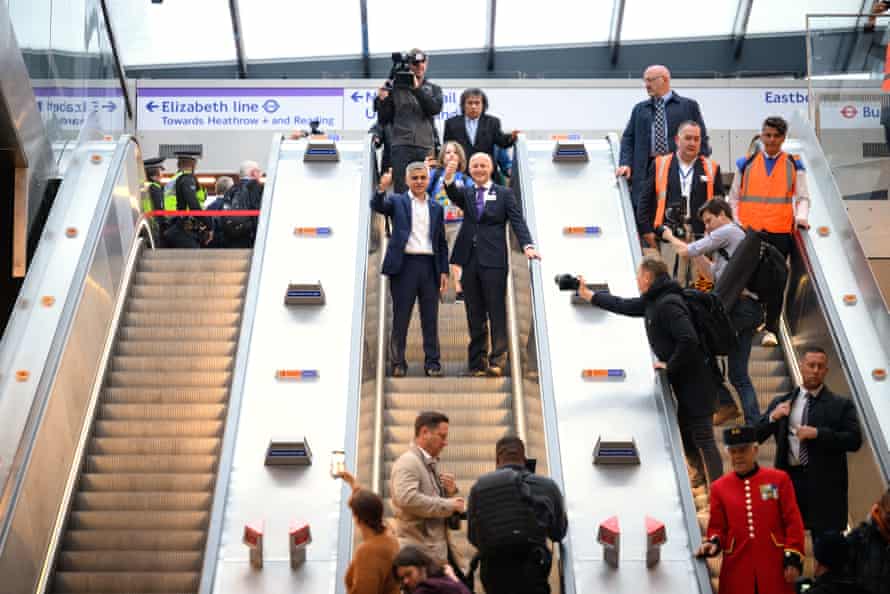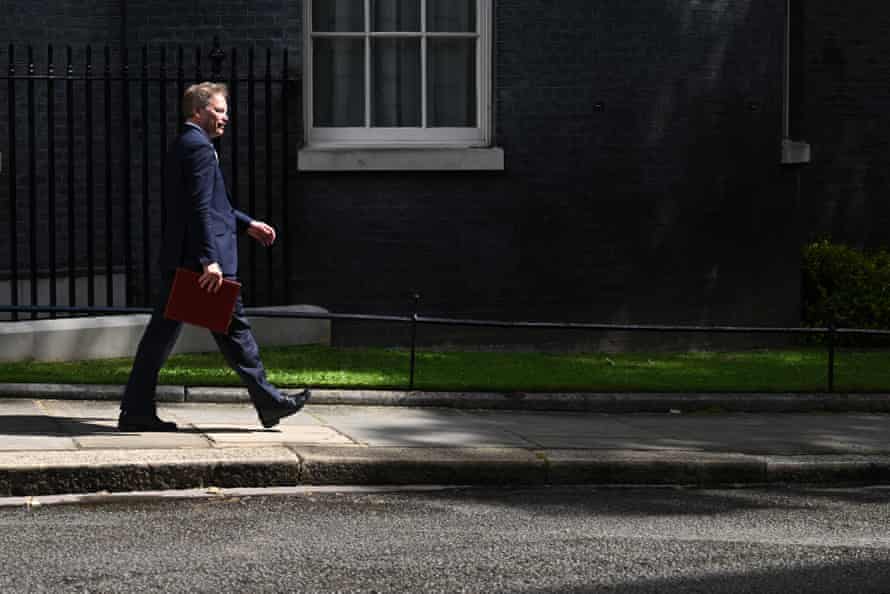
No 10 insiders reveal new details of partying and extensive drinking in Downing Street during lockdown
Downing Street insiders have described chaotic mid-lockdown parties in No 10 they felt were condoned by Boris Johnson as he “was grabbing a glass for himself”, PA Media reports. PA says:
Three anonymous individuals have told BBC Panorama in detail what they witnessed at regular rule-breaking events during coronavirus restrictions.
Their evidence will heap further pressure on the prime minister ahead of the publication of the Sue Gray inquiry into “partygate”, which No 10 expects on Wednesday.
Party debris was left overnight for people arriving at work the next day to discover after staff crowded together and sat on each other’s laps at parties, according to the attendees.
One said they felt they had the permission of the prime minister as he was not telling them to break up the scenes when returning to his flat.
“No, he wasn’t telling anybody that. He was grabbing a glass for himself,” they said.
Days after ordering England’s second national lockdown, the pictures obtained by ITV News yesterday showed the PM giving a toast for departing communications chief Lee Cain on November 13 2020.
One witness described the party that night: “There were about 30 people, if not more, in a room. Everyone was stood shoulder to shoulder, some people on each other’s laps … one or two people.”
“Unforgivable” scenes were described at the party on 16 April last year, which was the eve of the Duke of Edinburgh’s funeral.
They described a “lively event… a general party with people dancing around” that became so loud that security guards told them to go into the No 10 grounds.
Laura Kuenssberg, who made the programme for Panorama, has a much longer and more detailed account of the revelations on the BBC website here. It includes this account of how No 10 staffers reacted when Johnson told MPs that the rules had been followed at all times. Kuenssberg writes:
One staffer describes what happened when they watched the prime minister denying, in the House of Commons, that anything had gone wrong.
“We were watching it all live and we just sort of looked at each other in disbelief like – why?” they say.
“Why is he denying this when we’ve been with him this entire time, we knew that the rules had been broken, we knew these parties happened?”
Sadiq Khan writes to Met asking for explanation for its decision not to fine Johnson over No 10 leaving drinks
Sadiq Khan, the mayor of London, has written to the Metropolitan police asking for an explanation for its decision not to fine Boris Johnson for attending the Lee Cain leaving drinks at No 10 on 13 November 2020, the Telegraph’s Martin Evans reports. Others who attended were fined.
Earlier Khan said he thought the police should explain why they took that decision for the sake of “trust and confidence” in the force. (See 9.39am.)
As mayor of London Khan is the police and crime commissioner for the capital. Ultimately, if he is not happy with the way the Met is operating, he can force the commissioner to quit. But the Met does not have a full-time commissioner at the moment, because Khan got rid of the last one (Cressida Dick), and so currently he has less leverage over the force than usual.
BREAKING: Sadiq Khan has written to Acting Met Commissioner Sir Steve House demanding a public explanation as to why Boris was not fined for attending the Lee Cain leaving party. 1/
— Martin Evans (@evansma) May 24, 2022
His spokesman said he has asked for a “detailed explanation of the factors which were taken into account by investigating officers when decisions were made about whether to take action in individual cases in the Downing Street ‘Partygate’ investigation”.
— Martin Evans (@evansma) May 24, 2022
One rebel Tory thinks the number of letters submitted to the Conservative backbench 1922 Committee demanding a vote of no confidence in Boris Johnson is now in the high 40s, the Telegraph’s Christopher Hope reports. The threshold for a ballot to take place is 54.
** In today’s Chopper’s Politics Newsletter – three ‘no confidence’ letters in Boris Johnson have been submitted since the local elections.
The number submitted to 1922 chairman Sir Graham Brady now stands in the high 40s, according to one rebel Tory. ** https://t.co/viTSXVt2TC pic.twitter.com/azZjGpb8Py— Christopher Hope📝 (@christopherhope) May 24, 2022
Rachel Reeves, the shadow chancellor, says the news that the energy price cap is now expected to rise to £2,800 in October makes an emergency budget even more necessary.
This will cause enormous worry for families already facing soaring bills.
How many more alarm bells do the Conservatives need before they act?
We need an emergency budget now, with a windfall tax on oil and gas producer profits to lower bills.https://t.co/M5as9wkMiB
— Rachel Reeves (@RachelReevesMP) May 24, 2022
Amanda Milling, the Foreign Office minister, was also in the Commons to answer an urgent question about Nazanin Zaghari-Ratcliffe being forced to sign a false confession before she was allowed to leave Iran.
Asked by Labour’s Tulip Siddiq if the government had authorised the UK official with Zaghari-Ratcliffe at the airport to advise her to sign the document, Milling said the official did not force her to sign. Milling said:
The Iranian authorities made clear at the airport that they would not allow Nazanin to leave unless she signed a document … The UK official present passed on the message to Nazanin, and, given the situation Iran put her in, she agreed to sign it. The UK official did not force Nazanin to do so.
Milling also stressed that she did not view this as acceptable. “Nothing about the cruel treatment by Iran of detainees can be described as acceptable, including at the point of release,” she said.
In response to an urgent question earlier Amanda Milling, a Foreign Office minister, said the BBC revelations about China operating a shoot-to-kill policy against Uyghurs escaping prison camps amounted to “compelling evidence” of abuse. She said:
The reports suggests a shoot-to-kill policy was in place at re-education camps for detainees seeking to escape; this is just one of many details that fatally undermine China’s repeated assertions that these brutal places of detention were in fact vocational training centres or a legitimate response to concerns around extremism.
On the contrary, the compelling evidence we see before us reveals the extraordinary scale of China’s targeting of Uyghur Muslims and other ethnic minorities, including forced labour, severe restrictions on freedom of religion, the separation of parents from their children, forced birth control and mass incarceration.
Nusrat Ghani, the Conservative MP who tabled the urgent question, said the government should accept that what was happening to the Uyghurs amounted to genocide. But Milling said the government’s view was that it was for “a matter for a competent national or international court rather than for governments or non-judicial bodies” to determine when genocide was happening.
This is from Angela Rayner, the deputy Labour leader, on the revelations in tonight’s Panorama from insiders about the drinking culture at No 10. (See 2.11pm.)
We saw it as our own bubble, where the rules didn’t really apply, says one. 🫧
A picture of Boris Johnson’s Downing Street as a parallel universe. 🪐
Who will defend his rotten culture? https://t.co/mf9bH3es7O
— Angela Rayner 🌹 (@AngelaRayner) May 24, 2022
Boris Johnson is addressing the Conservative backbench 1922 Committee at 5pm tomorrow, Bloomberg’s Kitty Donaldson reports.
We are also expecting him to do a press conference tomorrow, but it is not clear when. If the Sue Gray report is published tomorrow, as expected, then the obvious time for PM to make his statement to MPs on it would be at 12.30pm, after PMQs.
Boris Johnson will address the 1922 Committee of backbench Tories tomorrow afternoon at 5 pm
– the latest sign Downing Street is expecting the #SueGrayReport Wednesday— Kitty Donaldson (@kitty_donaldson) May 24, 2022
No 10 insiders reveal new details of partying and extensive drinking in Downing Street during lockdown
Downing Street insiders have described chaotic mid-lockdown parties in No 10 they felt were condoned by Boris Johnson as he “was grabbing a glass for himself”, PA Media reports. PA says:
Three anonymous individuals have told BBC Panorama in detail what they witnessed at regular rule-breaking events during coronavirus restrictions.
Their evidence will heap further pressure on the prime minister ahead of the publication of the Sue Gray inquiry into “partygate”, which No 10 expects on Wednesday.
Party debris was left overnight for people arriving at work the next day to discover after staff crowded together and sat on each other’s laps at parties, according to the attendees.
One said they felt they had the permission of the prime minister as he was not telling them to break up the scenes when returning to his flat.
“No, he wasn’t telling anybody that. He was grabbing a glass for himself,” they said.
Days after ordering England’s second national lockdown, the pictures obtained by ITV News yesterday showed the PM giving a toast for departing communications chief Lee Cain on November 13 2020.
One witness described the party that night: “There were about 30 people, if not more, in a room. Everyone was stood shoulder to shoulder, some people on each other’s laps … one or two people.”
“Unforgivable” scenes were described at the party on 16 April last year, which was the eve of the Duke of Edinburgh’s funeral.
They described a “lively event… a general party with people dancing around” that became so loud that security guards told them to go into the No 10 grounds.
Laura Kuenssberg, who made the programme for Panorama, has a much longer and more detailed account of the revelations on the BBC website here. It includes this account of how No 10 staffers reacted when Johnson told MPs that the rules had been followed at all times. Kuenssberg writes:
One staffer describes what happened when they watched the prime minister denying, in the House of Commons, that anything had gone wrong.
“We were watching it all live and we just sort of looked at each other in disbelief like – why?” they say.
“Why is he denying this when we’ve been with him this entire time, we knew that the rules had been broken, we knew these parties happened?”
Government lawyers have been told be less risk averse in their advice to ministers, No 10 says
And here is a full summary of the lines from the Downing Street lobby briefing.
- The prime minister’s spokesperson played down, but would not firmly deny, reports that Boris Johnson floated with Sue Gray the idea of shelving her Partygate investigation. (See 12.46pm.)
- The spokesperson did not offer a justification for Johnson’s attendance at the Lee Cain leaving event where he was photographed drinking. This morning Grant Shapps, the transport secretary, sought to justify it as a work event. (See 9.14am.) But the spokesperson did not use this argument. Instead he just stressed that Johnson would be making a statement to MPs following the publication of the Sue Gray report. “That’s where you’ll hear more from him,” the spokesperson said.
- The spokesperson suggested that public sector workers may have to accept “limited” pay restraint to avoid the risk of inflation spiralling. This was one of the topics discussed at cabinet today. (See 12.46pm.)
- Government lawyers have been told to be less risk averse in their advice for ministers, the spokesperson revealed. This was another item that came up at cabinet today. The spokesperson said:
The attorney general [Suella Braverman] updated cabinet on a review of the government legal department. She said overall performance was high, however there were incidences where advice was too risk averse or took a computer says no approach to dealing with challenging policy areas. Following the review the government legal department has received revised guidance to ensure they are more attuned to the government’s desire to tackle difficult and longstanding issues.
The spokesperson said Braverman did not give details of over-cautious legal advice, but she did say departments were getting legal advice that was “more risk averse than was needed and didn’t reflect the sort of risk appetite that ministers had”. Braverman may have been thinking in particular of legal advice relating to Brexit. The head of the government legal department resigned in 2020 when the government introduced legislation that would ignore parts of the Northern Ireland protocol, contrary to international law. Those clauses were later dropped from the internal market bill but the government has recently revived its threat to abandon parts of the protocol. Braverman told No 10 that this would be legal, but other lawyers take a different view.
- Government spending on rail services is due to be cut over the long term, the spokesperson signalled. This was the third item of substance raised at cabinet and briefed to the lobby. The spokesperson said:
Turning to reforming our railways, the transport secretary [Grant Shapps] set out a summary of the proposed changes that will improve services, protect timetables and ultimately reduce the burden on taxpayers.
He added that railways have lost a third of its passengers and without reform, we cannot maintain the current service and would have to raise fares and taxpayer support to levels that the public cannot bear.
He reminded cabinet that, on average, railway workers had enjoyed higher pay increases and higher median pay than the majority of other public sector workers, including nurses. And he said salaries of rail workers had increased by 31% in 10 years.
The PM concluded cabinet by saying that there is no justification for the proposed industrial action that would cause major difficulties for many people across the country and he urged all ministers to plan now to minimise disruption this summer
- The spokesperson said Ben Wallace, the defence secretary, was the person who authorised the evacuation of staff from the Nowzad animal charity from Kabul last summer. He was responding to a journalist who said the foreign affairs committee report said there was no plausible explanation for this happening, other than Johnson getting involved, which No 10 denies. The report says:
Amid intense media attention, [Nowzad] staff were called for evacuation at the last minute, despite not meeting the FCDO’s prioritisation criteria, after a mysterious intervention from elsewhere in government. Multiple senior officials believed that the prime minister played a role in this decision. We have yet to be offered a plausible alternative explanation for how it came about.
Asked if he could provide a plausible alternative explanation, the spokesperson said:
The prime minister had no role in authorising individual evacuations from Afghanistan during that operation, that includes Nowzad staff and animals. At no point did the prime minister instruct staff to take any particular course of action. As the defence secretary and many others have said, he was the one who made that decision.
- The spokesperson said the government was “actively looking at what more could be done” to help people with energy bills. Asked about the Ofgem warning about the price cap going up in October (see 12.57pm), the spokesperson also said that some of the support already announced would be rolled out in the autumn.

This is from the Daily Mail’s Jason Groves.
Boris Johnson adopting masochism strategy to deal with Sue Gray report tomorrow. Statement to MPs, followed by meeting with Tory MPs at 1922 committee and a full press conference. Apologies expected at every stage
— Jason Groves (@JasonGroves1) May 24, 2022
Energy price cap set to rise by around £800, to around £2,800, from October, Ofgem says
Jonathan Brearley, the Ofgem chief executive, told MPs on the Commons business committee that he expects the energy price cap to rise to around £2,800 in October. He said:
I am afraid to say conditions have worsened in the global gas market since Russia’s invasion of Ukraine. Gas prices are higher and highly volatile. At times they have now reached over 10 times their normal level.
I know this is a very distressing time for customers but I do need to be clear with this committee, with customers and with the government about the likely price implications for October.
Therefore later today I will be writing to the chancellor to give him our latest estimates of the price cap uplift.
This is uncertain, we are only part way through the price cap window, but we are expecting a price cap in October in the region of £2,800.
That would amount to an increase of more than £800 for customers on default tariffs who pay by direct debit, who now have a price cap of £1,971. In April it went up by almost £700, from £1,277.
As my colleague Heather Stewart points out, the Treasury has been waiting for this figure before deciding what to include in its emergency cost of living package which is now expected to be announced soon.
This was one of the pieces of information Sunak has been saying he’s waiting for before taking more action on the cost of living crisis…(It’s not the final figure, but surely gives Treasury enough to go on…) https://t.co/HiwLQqWNmV
— Heather Stewart (@GuardianHeather) May 24, 2022
My colleague Phillip Inman has the full story here.
No 10 plays down, but does not firmly deny, reports PM floated with Sue Gray idea of shelving Partygate investigation
The Downing Street lobby briefing has just finished. It was longer and more informative than usual, with a lot of questions on Partygate, but also plenty of exchanges on other topics too.
Here are two of the main lines.
- No 10 has played down, but not firmly denied, reports that Boris Johnson floated with Sue Gray the idea of shelving her Partygate investigation. (See 9.14am.) Asked if it was true that at, as the Times reports, Johnson suggested the idea when he met Gray several weeks ago, the PM’s spokesperson replied:
I don’t recognise that characterisation. This is a private meeting. This was a meeting about process, rather than the contents of the report. The prime minister wants the report to be published. He is looking forward to the conclusion of the report and it being put in the public domain.
Asked a second time if the PM made that suggestion, the spokesperson replied:
The prime minister did not ask her to drop the report or not proceed with the report. As you know, it’s the prime minister who commissioned the report.
But the Times did not say Johnson asked Gray to drop the report. Instead, it says he floated the idea more obliquely. It says:
“[Johnson] asked her, is there much point in doing it now that it’s all out there?” a Whitehall source said. “He was inferring that she didn’t need to publish the report.” Another added: “They were exploring this idea of not having any report. It was being talked about [in Downing Street]. But politically they realised they couldn’t do it.”
- Public sector workers may have to accept “limited” pay restraint to avoid the risk of inflation spiralling, the spokesperson hinted. Describing what was said at cabinet this morning, the spokesperson said:
Cabinet held a discussion on public sector pay. The prime minister said the public are understandably anxious about global cost of living pressures, and that the government will continue to support those most in need. The government has already pledged to increase public sector sector spending and is awaiting decisions by public sector review bodies. However, ministers made clear that the risk of triggering higher inflation must be part of considerations when deciding pay awards this year.
When asked if this meant the government would overrule recommendations from the public sector pay review bodies, the spokesperson said that that was not what he was saying. He went on:
The point that ministers were emphasising that spiralling inflation will do more to damage people’s take home pay than the limited pay restraint that we’ve seen previously.
Asked if public sector workers would have to accept below-inflation pay increases, the spokesperson replied:
Obviously, I can’t predict exactly where inflation will go. But with inflation running so high, it does present a significant challenge to things like public sector pay. That said, it would be entirely wrong for me to jump ahead of the process. There is an independent process ongoing, and the first stage of that is for [the pay review bodies] to make recommendations to government.
I will post a full summary shortly.
The Conservative MP David Simmonds, who has been critical of Boris Johnson over Partygate without directly calling for his resignation, told Times Radio this morning that it would be “very difficult” for Johnson to explain why he was not lying when he told MPs that a party did not take place in Downing Street on 13 November 2020 – when he was photographed drinking at a leaving do that night. Asked if Johnson was telling the truth, Simmonds replied:
That clearly is is the question. He said in his defence previously, that it hadn’t occurred to him that one or the other events could not be considered a work event.
Now, I’m very conscious, I’ve had colleagues move on from my office during the lockdown and we knew that we needed to defer leaving drinks, leaving lunches until the restrictions were lifted. And that certainly seems to be a widespread view. So clearly, it’s a very difficult question for the prime minister to answer but he clearly needs to set out his explanation for it …
It sometimes has the feel of the old Blackadder thing about the explanation needs to be phenomenally good.

Gwyn Topham
Sadiq Khan, the mayor of London, has said he was “gobsmacked” when he saw the photos obtained by ITV News yesterday of Boris Johnson raising a wine glass at a Downing Street party. Khan told the Guardian:
I literally couldn’t believe what my eyes were telling me … I think it is right and proper that the Met police service explains how they drew their conclusions.
Yes, it is correct that there were record numbers of fines – no other property, no street in the country has had that number of fines issued.
But the public are asking questions of the police. I don’t like questions of integrity being raised around the police. That is why they should clarify those conclusions.

Real value of benefits set to fall by 5% this year because of inflation, OBR says
The Office for Budget Responsibility has published a report today on trends in welfare spending. It says that the real value of benefits is set to fall by 5% this year, or by £12bn, because they are being uprated by September’s inflation rate, which is much lower than the current inflation rate. But their value will largely be restored when benefits are uprated next year, the OBR says.
It explains:
The precise timing of inflation changes this year and last is such that the lags to benefit uprating are particularly pronounced: benefits were uprated by 3.1% this April – in line with last September’s CPI – but inflation began rising rapidly just after that and is forecast to average 8.0% across fiscal year 2022-23 as a whole, meaning the real value of benefits falls by around 5%, or £12bn in total (including pensioner spending) this year.
Our forecast assumes that benefits will rise by 7.5% in April 2023 (our March forecast for the CPI inflation rate in September this year), whereas CPI inflation is expected to average 2.4% in 2023-24 as a whole. So the real value of benefits is expected to rise by around 5% in 2023-24 (£13bn in total), largely restoring their real value after the dip in 2022-23.
Tom Larkin from Sky News is keeping a tally of Tory MPs publicly saying Boris Johnson should resign. He says there are currently 15 in this category.
Back by popular demand: here’s the current standings in the big No Confidence spreadsheet.
Roger Gale shifting this morning from the ‘not yet’ to the ‘go immediately’ column.
15 Tory MPs now publicly calling for the PM’s immediate resignation. How many more in the next 48h? pic.twitter.com/7c2iD0eJWp
— Tom Larkin (@TomLarkinSky) May 24, 2022


Haroon Siddique
Lawyers for an 82-year-old Jewish woman who was investigated three times in three years by Labour for antisemitism have written to the party demanding that it carry out an independent investigation into what it alleges was a campaign of discrimination against her. They suggest her anti-Zionism was a protected characteristic under the Equality Act.
Labour dropped the latest investigation into Diana Neslen, who regularly attends her local synagogue and keeps a kosher home, after she threatened to sue the party for unlawfully discriminating against her based on her belief in anti-Zionism.
The party was investigating her for tweets she posted about Israel and Zionism. Her lawyers, Bindmans, had said the investigation was unjustified and disproportionate, with the only admissible tweet being one from 2017, in which Neslen said “the existence of the state of Israel is a racist endeavour and I am an antiracist Jew”.
A new letter sent to Labour by Bindmans says the party’s governance and legal unit (GLU) has “failed/refused to properly investigate and/or address our client’s complaints under the party’s own policies on bullying and harassment”. It continues:
Anti-Zionist (or indeed Zionist) beliefs that are strong enough to justify protection under the EA (Equality Act) 2010 are most likely to be held by those of Jewish or Palestinian ethnicities, given it is those ethnicities that are likely to be primarily affected by such beliefs. Accordingly, harassment based on anti-Zionist beliefs equates to harassment based on ethnicity, and it is therefore submitted that the party has subjected our client to harassment on the basis of ethnicity.
In 2018, Labour, under pressure to act on allegations of antisemitism. adopted the International Holocaust Remembrance Alliance’s (IHRA’s) definition of the term. The IHRA definition of antisemitism includes as an example: “Denying the Jewish people their right to self-determination, eg by claiming that the existence of a state of Israel is a racist endeavour.”
Jewish Voice for Labour, of which Neslen is a member, says it knows of 52 Jewish Labour members, two of whom have since died, who have faced or are facing disciplinary charges relating to allegations of antisemitism.
There will be two urgent questions in the Commons at 12.30pm. The first, tabled by the Conservative MP Nusrat Ghani is on the BBC reports about China operating a shoot-to-kill policy against Uyghurs escaping prison camps, and the second, tabled by Labour’s Tulip Siddiq, is about Nazanin Zaghari-Ratcliffe being forced to sign a confession before she left Iran.


